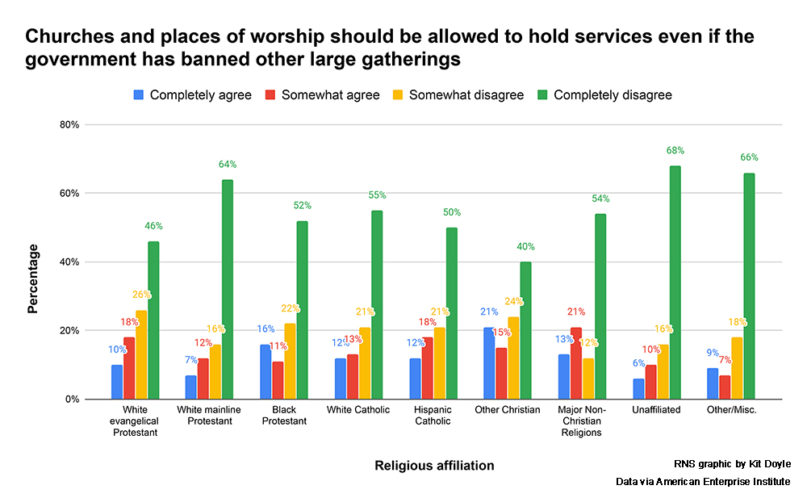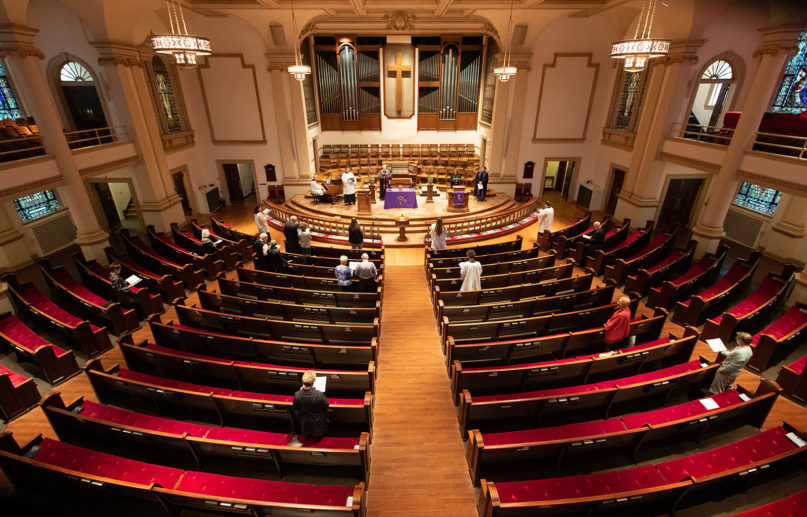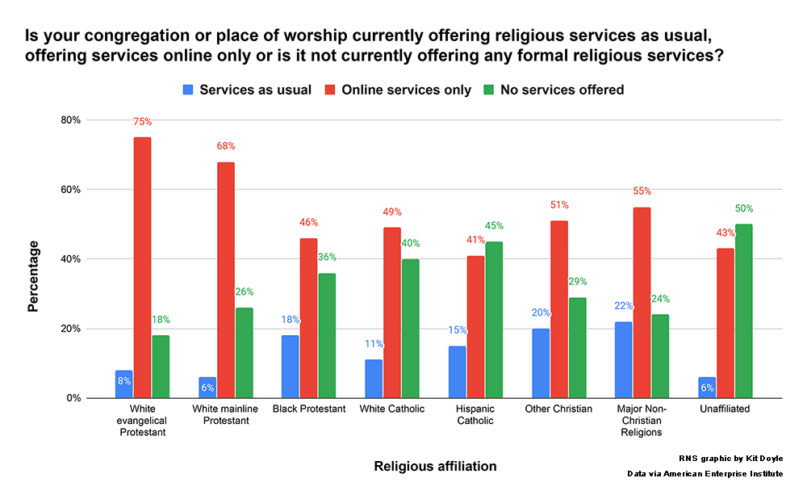(RNS) — In mid-March, Pastor Howard-Browne, head of the River at Tampa Bay Church, declared before his packed congregation: “I’ve got news for you: This church will never close.”
A little over two weeks later, he was under arrest.
It was the first chapter in an ongoing drama playing out in Florida, where the Hillsborough County pastor was arrested on Monday (March 30) for continuing to hold worship services at his church despite local regulations prohibiting large gatherings amid the ongoing pandemic caused by the novel coronavirus.
Experts say it may be a sign of things to come. Although most faith groups have stopped meeting and shifted to virtual services, some continue to gather, and reports abound of Americans inadvertently spreading the novel coronavirus through religious events. Lawmakers, religious leaders and health experts across the U.S. are wrestling with the question: Does religious freedom mean the freedom to risk infecting your fellow believers — not to mention neighbors — with a deadly virus?
RELATED: Click here for complete coverage of COVID-19 on RNS
For Mat Staver, head of the conservative advocacy group Liberty Counsel, the question is at the heart of a federal lawsuit he threatened to file this week against officials in Hillsborough County. Staver argued that the county-level regulations restricting large gatherings that led to the arrest of Howard-Browne violated the church’s First Amendment rights because they did not exempt churches. He also argued that authorities did not use the least restrictive means to enforce them.
The county restrictions give government the power to “wipe churches off the map,” he said.
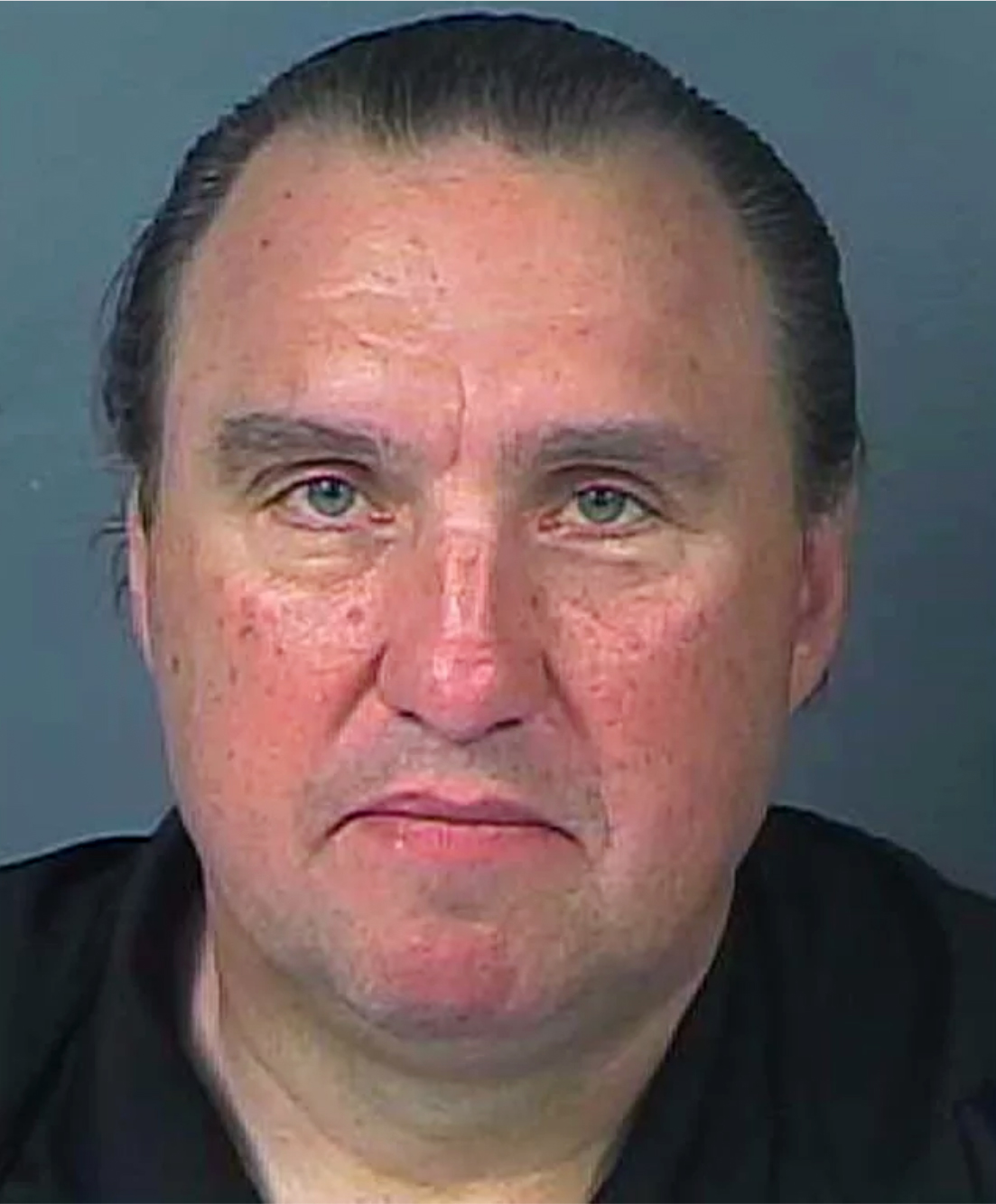
This Monday, March 30, 2020, booking photo provided by the Hernando County Jail shows Rodney Howard-Browne, pastor of The River Church. Photo courtesy of Hernando County Jail
Things escalated by mid-week: Florida Gov. Ron DeSantis issued a 30-day stay-at-home order but listed religious services as “essential,” with the Hillsborough County Council passing a similar resolution shortly thereafter. However, the sheriff’s office told RNS that both orders are not retroactive, and while no cases of COVID-19 have been linked to the River at Tampa Bay, the charges against the pastor — which include “violation of public health emergency rules” — still stand.
The events added to tensions that have been simmering for weeks between authorities and a select few faith groups.
In the earliest stages of the pandemic, governors in states such as Washington issued stay-at-home or shelter-in-place orders that barred faith communities from gathering in person, reasoning that worship will only further spread the infection. Many faith communities were eager to comply: After an Episcopal priest in Washington, D.C., tested positive for the virus in early March, religious communities across the country began to implement restrictions on their worship services before most canceled in-person gatherings altogether and began using internet tools for spiritual assemblies instead.
Where there was dissent, authorities have stepped in. In addition to charges levied against Howard-Browne, law enforcement officials in Louisiana arrested a pastor this week after he continued to worship with crowds as large as 1,000, which a local police chief described as “reckless and irresponsible” amid the pandemic. Police in New Jersey and Illinois also broke up funeral services at a synagogue and a church, respectively, when the crowds of mourners ballooned into the dozens.
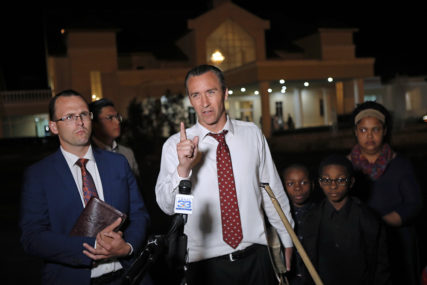
Pastor Tony Spell speaks to media after holding an evening service at the Life Tabernacle Church in Central, Louisiana, Tuesday, March 31, 2020. Spell did so despite being charged with misdemeanors today, for holding services against Gov. John Bel Edwards shelter-in-place order due to the new coronavirus pandemic. (AP Photo/Gerald Herbert)
And while the Trump administration and White House were initially slow to make any sweeping declarations concerning the responsibilities of faith groups during the pandemic, Vice President Mike Pence asked Americans on Wednesday not to attend church services of more than 10 people.
“We really believe this is a time when people should avoid gatherings of more than 10 people,” Pence said during an interview with “Nightline” co-anchor Byron Pitts. “And so we continue to urge churches around America to heed to that.”
But even the words of the vice president, a stalwart religious Republican long championed by conservative Christians as a defender of religious liberty, are not enough to convince advocates such as Staver, who said he “absolutely opposes” the vice president’s recommendation.
“You cannot have a one size fits all (approach) in a nation of 300-plus million people with hundreds of thousands of churches that perform all different kinds of functions that are essential and could not operate under that restriction,” he said.
Staver argued that if hardware stores and establishments that sell alcohol are considered “essential,” as many stay-at-home and shelter-in-place orders do, then so too should churches. He also insisted that churches offer essential services to communities besides worship, such as food pantries or farmer’s markets, and shutting them down can have wide-ranging effects.




